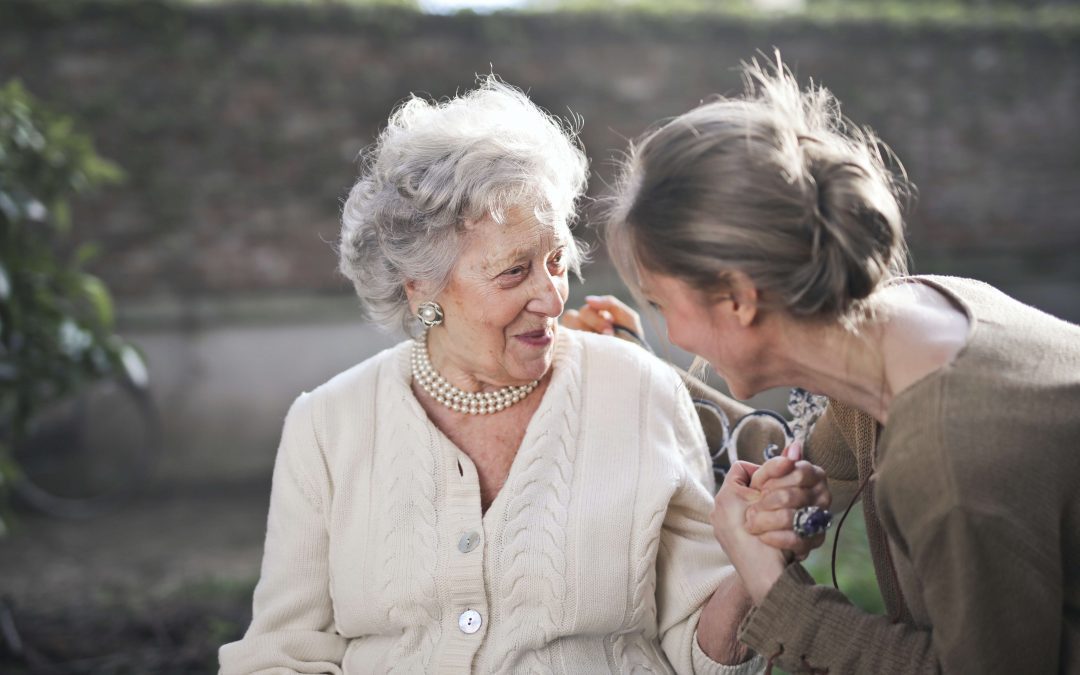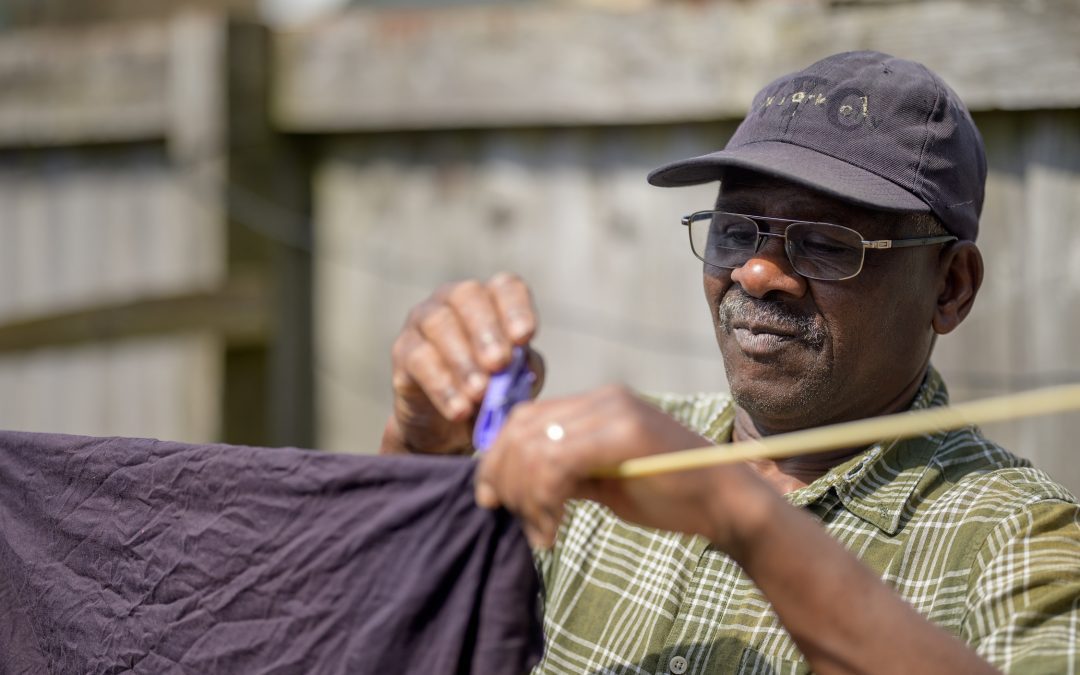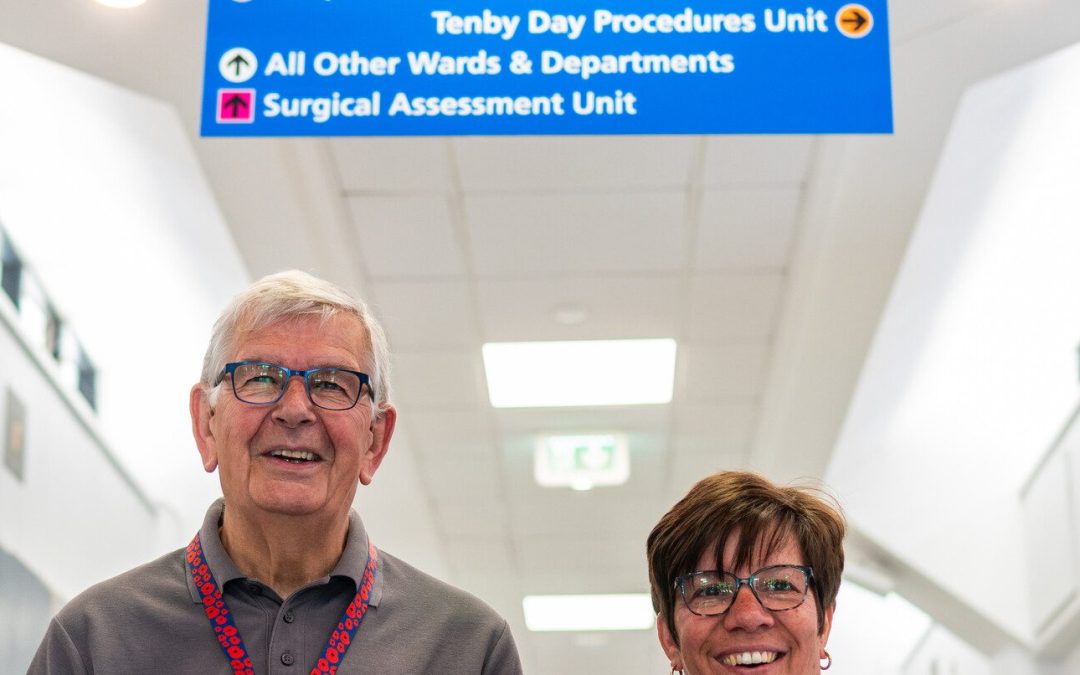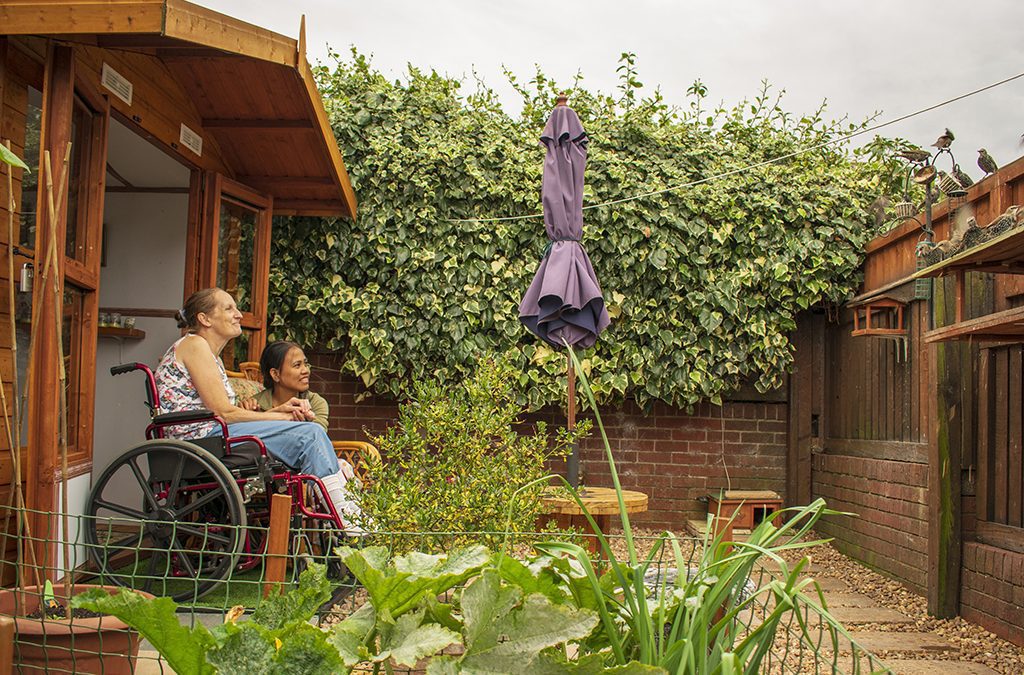When someone you know and may be close to is given a diagnosis of dementia, it can be difficult to know whether to tell other people. You may want to protect the person you support, or you may be worried about how people will react.

START / Hearing (and giving) a diagnosis
Make sense of what you are going through

When someone you know and may be close to is given a diagnosis of dementia, it can be difficult to know whether to tell other people. You may want to protect the person you support, or you may be worried about how people will react.

References and resources compiled with the kind co-operation of the Forward with Dementia Social Prescribers advice and testing group in 2024 useful for all healthcare professionals

Trish, a social prescriber working in a third sector organisation in the East of England discusses barriers that dementia can pose when supporting her clients.

As a clinician, part of your role may be to give someone a dementia diagnosis. Giving a diagnosis of dementia can be challenging, even for experienced clinicians. Knowing the key steps to giving a dementia diagnosis with a positive frame is helpful for your patients, family care partners and for yourself.

Clare is a social prescribing link worker that works within a PCN in a large metropolitan area. She sometimes gets referrals for clients from underserved communities, including, for example, the South Asian community.

Roy takes us through his experience of working with clients living with dementia and the issues of overdependency on the support that he provides.

Tony is a Care Coordinator working in a PCN in rural Southwest England. Tony shares his experience of identifying resources in the community to meet the needs of his clients with dementia.

We share some common questions and concerns people have about making plans for living a life with dementia. These explain why it might be important to start making plans for your health, wellbeing and support.

Understanding your feelings is a key step in moving forward with dementia

Be confident and positive in your life with dementia

Your dementia diagnosis affects others too. Share your diagnosis and move forward with dementia

Strategies for when others treat you differently because you have dementia

Coming to terms with a diagnosis of dementia is a key step in moving forward

Sharing a dementia diagnosis helps others to understand it and for you to come to terms with it

Managing when others treat you differently because of dementia.

Know your dementia.
Understand your symptoms and treatment options to help you take steps to adapting to life with dementia.

You can adapt to dementia and continue living your life

Knowing about future dementia changes may help you prepare

Getting advice and learning from others can help you and the person you support better understand dementia to live more positively

Getting advice and learning from others can help the person you and the person you support better understand dementia to live more positively.

Knowing how the future may change with dementia can help you prepare support and care.

Find therapies and strategies to help you live a meaningful life with dementia

Strategies, therapies and medications to help with your memory and thinking

Driving with dementia and other transport options

Strategies and therapy to help your life at home

Strategies and therapies to help you talk to others and manage everyday activities

Strategies, therapies and medications to help with memory and thinking

Plan for this year, have conversations, work out how to achieve your plans

Get support in place as you plan for now and the future

Put written plans in place now to help with making decisions in future

Exercise, diet, sleep and health care to boost your physical and brain health

Build emotional resilience, be mentally and socially active to boost your brain health

Keeping or stopping driving after a dementia diagnosis

Helping the person you support to keep going out and socialising with others

Solutions and methods to help with life at home

Look after your own health, to help you both move forward with dementia

Look after your own health, to help you both move forward with dementia.

Look after your feelings and stay connected with others to manage challenges of caring.

Plan for this year, have conversations, look into services

Get support in place as you plan for now and the future

Get written plans in place to help you share your wishes for the future

Connecting people with the right support at the right time.

Sensitively managing reactions to a dementia diagnosis.

Help the person with dementia and their carer to plan healthcare and wellbeing as they move forward

Helping the person and their carer understand and manage changes.

Practically support shared decision making and planning ahead to move forward with dementia.

Giving an informed, person-centred dementia diagnosis to help people move forward.

By finding out if your client has a dementia diagnosis, you may be able to help them to manage these changes.
It might be helpful to talk to your client and their family, friend, or advocate about your concerns with your client’s permission…

It is important to remember that there are laws to make sure that everyone including people living with dementia are included in making decisions about their health and wellbeing.

Recognising common signs of dementia may help you look after the people you support

We explain ways in which people living with dementia can continue to make decisions and who might help them to make important decisions.

helping people living with dementia decide what support is right for them As a healthcare professional, you may already understand how to connect people to social care. However, understanding what support is on offer and how to navigate the system can often be difficult for people with dementia and those who care for them. This article summarises key information to help the person with dementia to connect with social care.

Deciding what support is right for you and the person you support.

Sharing a dementia diagnosis helps others to understand it and for you to come to terms with it

Understand how your client may communicate with you, so you can best support them.

Help the person you support to engage with and accept social care services

Look after your health, feelings and safety to manage challenges of caring.

Boost your skills and knowledge about dementia care – take a training course or find educational information

Find ideas to help you manage your money and finances independently and with support of people you trust

Help the person you support to manage their money safely and independently

Helping you to get the best treatment and care during your hospital admission

Munjal is a social prescribing link worker for GPs in a large city in Northwest England. Munjal shares experiences and suggestions to address the challenges of people with dementia struggling to engage on first contact.

Dionne is a social prescribing link worker in a large city in the West Midlands. She shares her experience of building rapport with clients with dementia.

Danielle is a social prescribing link worker in a PCN. They share their experience of routine pre-contact stages and some insight and tips on how to prepare to support a client with dementia who has been referred to them.

Marco has recently started working in a PCN in London. He shares his insight into the dementia training as well as some tips to enhance professional skills to support clients with dementia.

Cat is a Health and Wellbeing Coach. She shares her experience of the impact on her emotional wellbeing of supporting clients with dementia and their families, and some strategies and tips that can help.

When someone you know and may be close to is given a diagnosis of dementia, it can be difficult to know whether to tell other people. You may want to protect the person you support, or you may be worried about how people will react.

References and resources compiled with the kind co-operation of the Forward with Dementia Social Prescribers advice and testing group in 2024 useful for all healthcare professionals

Trish, a social prescriber working in a third sector organisation in the East of England discusses barriers that dementia can pose when supporting her clients.

As a clinician, part of your role may be to give someone a dementia diagnosis. Giving a diagnosis of dementia can be challenging, even for experienced clinicians. Knowing the key steps to giving a dementia diagnosis with a positive frame is helpful for your patients, family care partners and for yourself.

Clare is a social prescribing link worker that works within a PCN in a large metropolitan area. She sometimes gets referrals for clients from underserved communities, including, for example, the South Asian community.

Roy takes us through his experience of working with clients living with dementia and the issues of overdependency on the support that he provides.

Tony is a Care Coordinator working in a PCN in rural Southwest England. Tony shares his experience of identifying resources in the community to meet the needs of his clients with dementia.

We share some common questions and concerns people have about making plans for living a life with dementia. These explain why it might be important to start making plans for your health, wellbeing and support.

Understanding your feelings is a key step in moving forward with dementia

Be confident and positive in your life with dementia

Your dementia diagnosis affects others too. Share your diagnosis and move forward with dementia

Strategies for when others treat you differently because you have dementia

Coming to terms with a diagnosis of dementia is a key step in moving forward

Sharing a dementia diagnosis helps others to understand it and for you to come to terms with it

Managing when others treat you differently because of dementia.

Know your dementia.
Understand your symptoms and treatment options to help you take steps to adapting to life with dementia.

You can adapt to dementia and continue living your life

Knowing about future dementia changes may help you prepare

Getting advice and learning from others can help you and the person you support better understand dementia to live more positively

Getting advice and learning from others can help the person you and the person you support better understand dementia to live more positively.

Knowing how the future may change with dementia can help you prepare support and care.

Find therapies and strategies to help you live a meaningful life with dementia

Strategies, therapies and medications to help with your memory and thinking

Driving with dementia and other transport options

Strategies and therapy to help your life at home

Strategies and therapies to help you talk to others and manage everyday activities

Strategies, therapies and medications to help with memory and thinking

Plan for this year, have conversations, work out how to achieve your plans

Get support in place as you plan for now and the future

Put written plans in place now to help with making decisions in future

Exercise, diet, sleep and health care to boost your physical and brain health

Build emotional resilience, be mentally and socially active to boost your brain health

Keeping or stopping driving after a dementia diagnosis

Helping the person you support to keep going out and socialising with others

Solutions and methods to help with life at home

Look after your own health, to help you both move forward with dementia

Look after your own health, to help you both move forward with dementia.

Look after your feelings and stay connected with others to manage challenges of caring.

Plan for this year, have conversations, look into services

Get support in place as you plan for now and the future

Get written plans in place to help you share your wishes for the future

Connecting people with the right support at the right time.

Sensitively managing reactions to a dementia diagnosis.

Help the person with dementia and their carer to plan healthcare and wellbeing as they move forward

Helping the person and their carer understand and manage changes.

Practically support shared decision making and planning ahead to move forward with dementia.

Giving an informed, person-centred dementia diagnosis to help people move forward.

By finding out if your client has a dementia diagnosis, you may be able to help them to manage these changes.
It might be helpful to talk to your client and their family, friend, or advocate about your concerns with your client’s permission…

It is important to remember that there are laws to make sure that everyone including people living with dementia are included in making decisions about their health and wellbeing.

Recognising common signs of dementia may help you look after the people you support

We explain ways in which people living with dementia can continue to make decisions and who might help them to make important decisions.

helping people living with dementia decide what support is right for them As a healthcare professional, you may already understand how to connect people to social care. However, understanding what support is on offer and how to navigate the system can often be difficult for people with dementia and those who care for them. This article summarises key information to help the person with dementia to connect with social care.

Deciding what support is right for you and the person you support.

Sharing a dementia diagnosis helps others to understand it and for you to come to terms with it

Understand how your client may communicate with you, so you can best support them.

Help the person you support to engage with and accept social care services

Look after your health, feelings and safety to manage challenges of caring.

Boost your skills and knowledge about dementia care – take a training course or find educational information

Find ideas to help you manage your money and finances independently and with support of people you trust

Help the person you support to manage their money safely and independently

Helping you to get the best treatment and care during your hospital admission

Munjal is a social prescribing link worker for GPs in a large city in Northwest England. Munjal shares experiences and suggestions to address the challenges of people with dementia struggling to engage on first contact.

Dionne is a social prescribing link worker in a large city in the West Midlands. She shares her experience of building rapport with clients with dementia.

Danielle is a social prescribing link worker in a PCN. They share their experience of routine pre-contact stages and some insight and tips on how to prepare to support a client with dementia who has been referred to them.

Marco has recently started working in a PCN in London. He shares his insight into the dementia training as well as some tips to enhance professional skills to support clients with dementia.

Cat is a Health and Wellbeing Coach. She shares her experience of the impact on her emotional wellbeing of supporting clients with dementia and their families, and some strategies and tips that can help.

When someone you know and may be close to is given a diagnosis of dementia, it can be difficult to know whether to tell other people. You may want to protect the person you support, or you may be worried about how people will react.

References and resources compiled with the kind co-operation of the Forward with Dementia Social Prescribers advice and testing group in 2024 useful for all healthcare professionals

Trish, a social prescriber working in a third sector organisation in the East of England discusses barriers that dementia can pose when supporting her clients.

As a clinician, part of your role may be to give someone a dementia diagnosis. Giving a diagnosis of dementia can be challenging, even for experienced clinicians. Knowing the key steps to giving a dementia diagnosis with a positive frame is helpful for your patients, family care partners and for yourself.

Clare is a social prescribing link worker that works within a PCN in a large metropolitan area. She sometimes gets referrals for clients from underserved communities, including, for example, the South Asian community.

Roy takes us through his experience of working with clients living with dementia and the issues of overdependency on the support that he provides.

Tony is a Care Coordinator working in a PCN in rural Southwest England. Tony shares his experience of identifying resources in the community to meet the needs of his clients with dementia.

We share some common questions and concerns people have about making plans for living a life with dementia. These explain why it might be important to start making plans for your health, wellbeing and support.

Understanding your feelings is a key step in moving forward with dementia

Be confident and positive in your life with dementia

Your dementia diagnosis affects others too. Share your diagnosis and move forward with dementia

Strategies for when others treat you differently because you have dementia

Coming to terms with a diagnosis of dementia is a key step in moving forward

Sharing a dementia diagnosis helps others to understand it and for you to come to terms with it

Managing when others treat you differently because of dementia.

Know your dementia.
Understand your symptoms and treatment options to help you take steps to adapting to life with dementia.

You can adapt to dementia and continue living your life

Knowing about future dementia changes may help you prepare

Getting advice and learning from others can help you and the person you support better understand dementia to live more positively

Getting advice and learning from others can help the person you and the person you support better understand dementia to live more positively.

Knowing how the future may change with dementia can help you prepare support and care.

Find therapies and strategies to help you live a meaningful life with dementia

Strategies, therapies and medications to help with your memory and thinking

Driving with dementia and other transport options

Strategies and therapy to help your life at home

Strategies and therapies to help you talk to others and manage everyday activities

Strategies, therapies and medications to help with memory and thinking

Plan for this year, have conversations, work out how to achieve your plans

Get support in place as you plan for now and the future

Put written plans in place now to help with making decisions in future

Exercise, diet, sleep and health care to boost your physical and brain health

Build emotional resilience, be mentally and socially active to boost your brain health

Keeping or stopping driving after a dementia diagnosis

Helping the person you support to keep going out and socialising with others

Solutions and methods to help with life at home

Look after your own health, to help you both move forward with dementia

Look after your own health, to help you both move forward with dementia.

Look after your feelings and stay connected with others to manage challenges of caring.

Plan for this year, have conversations, look into services

Get support in place as you plan for now and the future

Get written plans in place to help you share your wishes for the future

Connecting people with the right support at the right time.

Sensitively managing reactions to a dementia diagnosis.

Help the person with dementia and their carer to plan healthcare and wellbeing as they move forward

Helping the person and their carer understand and manage changes.

Practically support shared decision making and planning ahead to move forward with dementia.

Giving an informed, person-centred dementia diagnosis to help people move forward.

By finding out if your client has a dementia diagnosis, you may be able to help them to manage these changes.
It might be helpful to talk to your client and their family, friend, or advocate about your concerns with your client’s permission…

It is important to remember that there are laws to make sure that everyone including people living with dementia are included in making decisions about their health and wellbeing.

Recognising common signs of dementia may help you look after the people you support

We explain ways in which people living with dementia can continue to make decisions and who might help them to make important decisions.

helping people living with dementia decide what support is right for them As a healthcare professional, you may already understand how to connect people to social care. However, understanding what support is on offer and how to navigate the system can often be difficult for people with dementia and those who care for them. This article summarises key information to help the person with dementia to connect with social care.

Deciding what support is right for you and the person you support.

Sharing a dementia diagnosis helps others to understand it and for you to come to terms with it

Understand how your client may communicate with you, so you can best support them.

Help the person you support to engage with and accept social care services

Look after your health, feelings and safety to manage challenges of caring.

Boost your skills and knowledge about dementia care – take a training course or find educational information

Find ideas to help you manage your money and finances independently and with support of people you trust

Help the person you support to manage their money safely and independently

Helping you to get the best treatment and care during your hospital admission

Munjal is a social prescribing link worker for GPs in a large city in Northwest England. Munjal shares experiences and suggestions to address the challenges of people with dementia struggling to engage on first contact.

Dionne is a social prescribing link worker in a large city in the West Midlands. She shares her experience of building rapport with clients with dementia.

Danielle is a social prescribing link worker in a PCN. They share their experience of routine pre-contact stages and some insight and tips on how to prepare to support a client with dementia who has been referred to them.

Marco has recently started working in a PCN in London. He shares his insight into the dementia training as well as some tips to enhance professional skills to support clients with dementia.

Cat is a Health and Wellbeing Coach. She shares her experience of the impact on her emotional wellbeing of supporting clients with dementia and their families, and some strategies and tips that can help.